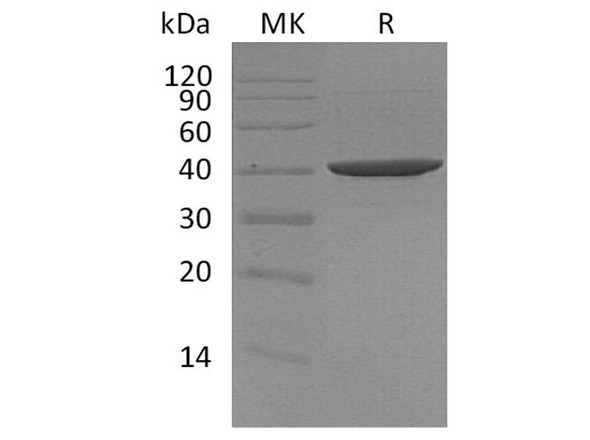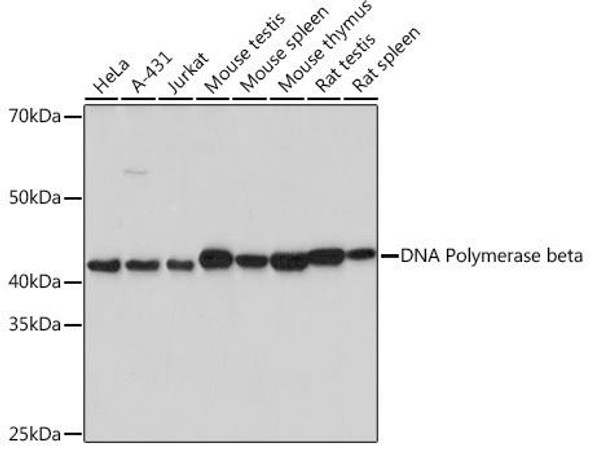Pfu DNA polymeraseenzyme is found in the hyperthermophilic archaeonPyrococcus furiosus, where it functions in vivoto replicate the organism's DNA. In vitro, Pfu is used to swiftly amplify DNAin the Polymerase Chain Reaction, where the enzyme serves the central function of copying a new strand of DNA during each extension step. Pfu DNA polymerase has superior thermostability and 'proofreading' properties compared to other thermostable polymerases. Unlike Taq DNA polymerase, Pfu DNA polymerase possesses 3' to 5' exonuclease proof reading activity, meaning that it works its way along the DNA from the 5' endto the 3' endand corrects nucleotidemisin corporation errors. Pfu DNA polymerase-generated PCRfragments will have fewer errors than Taq-generated PCR inserts. As a result, Pfu is more commonly used for molecular cloning of PCR fragments than the historically popular Taq. Pfu DNA polymerase is superior for techniques that require high-fidelity DNA synthesis, but can also be used in conjunction with Taq polymerase to obtain the fidelity of Pfu with the speed of Taq polymerase activity.
Pfu DNA Polymerase is a thermo-stable enzyme having a Mw of about 90kDa. Pfu DNA Polymerase is derived from E. coli that and cloned from Pyrococcus furiosus strain Vc1 DSM3638. Pfu DNA Polymerase replicates DNA at 75�C, catalyzing the polymerization of nucleotides into duplex DNA in the 5� to 3� direction in the existence of magnesium. Pfu DNA Polymerase possesses 3� to 5� exonuclease (proofreading) activity. Base misinsertions that take place during polymerization are swiftly removed by the proofreading activity of the polymerase. Therefore, Pfu DNA Polymerase is suggested for use in PCR and primer extension reactions that require high-fidelity synthesis. Pfu DNA Polymerase-generated PCR fragments are blunt-ended.






